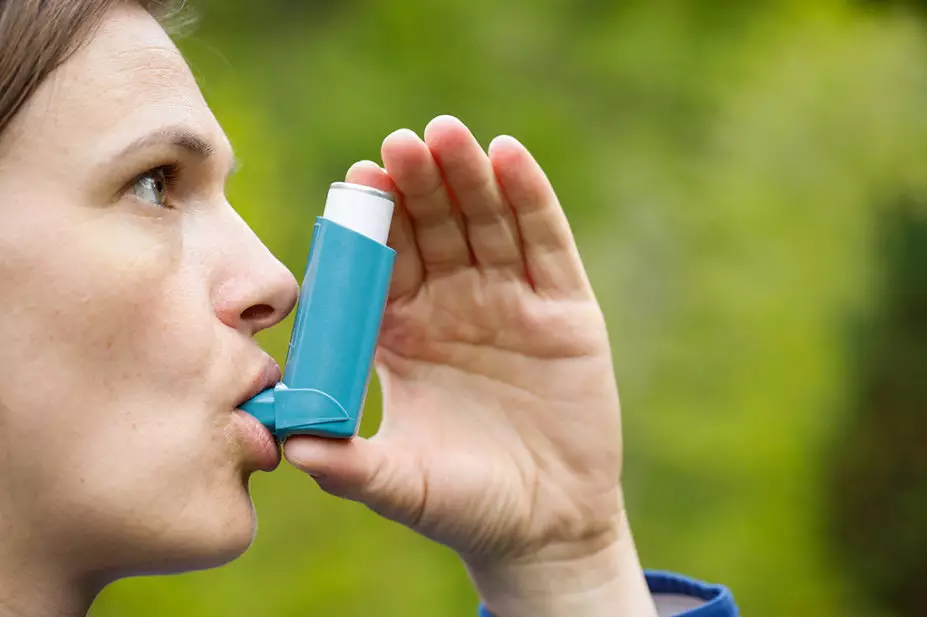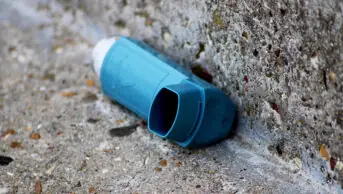
Shutterstock.com
NHS Scotland has announced plans to reduce emissions from medical inhaler propellants by 70% in the next six years, owing to their environmental impact.
As part of its ‘Climate Emergency and Sustainability Strategy 2022–2026′, published on 16 August 2022, NHS Scotland said it would implement regular reviews of patients with asthma and chronic obstructive pulmonary disease (COPD) who use metered dose inhalers (MDIs).
Around 4.5 million MDIs — which contain a propellant gas that could contribute to climate change — were dispensed in Scotland in 2020/2021.
The strategy document says reducing MDI use could be achieved “through improvements in the way asthma and COPD are managed” and by use of dry powder inhalers (DPIs) where appropriate.
The document suggests “implementing regular reviews of patients on MDIs and considering the switch to DPI as part of the review and supporting patients to switch to DPIs where those are suitable for them”.
In 2028, NHS Scotland will review progress and is likely to set a new target “on the path to net zero”.
In February 2022, respiratory experts raised concerns about a similar inhaler device switching programme in England, warning that patients were not being properly consulted about the switch and could suffer worse asthma control as a result.
The strategy says the ‘Scottish Quality Respiratory Prescribing Guide‘ will be updated to “focus on improving patient outcomes, minimising patient overuse of inhalers and supporting patients to use propellant free options where clinically appropriate”.
Toby Capstick, consultant pharmacist in respiratory medicine at Leeds Teaching Hospitals NHS Trust, said the best way to reduce environmental impact from MDI inhalers is to ensure people’s asthma and COPD was well controlled.
“There’s always a risk when you focus on targets that people will go for the quick wins.
“About two-thirds of MDI inhalers prescribed are salbutamol. We know from NHS data that 20% of people are using six or more [salbutamol] inhalers a year. If you’ve got really good control, you shouldn’t use more than one a year … if we optimise [patients’] asthma treatment, we drive down how much salbutamol they are using.”
He added that the way to switch people from MDIs was during annual reviews, after checking their inhaler technique and talking to them about the reasons for the change.
In addition to reducing unnecessary use, Capstick recommended that people should be encouraged to return used inhaler capsules to their pharmacists for disposal, so that propellant was disposed of safely and did not leak into the atmosphere.
Clare Morrison, director for Scotland at the Royal Pharmaceutical Society (RPS), which supports the NHS Scotland strategy, said: “I am absolutely delighted to see NHS Scotland has taken on board our suggestions in the consultation for this strategy, and to read that improving the sustainability of medicines use features heavily.
“As medicines experts, pharmacists have unique insight into how medicines can be used more sustainably and safely, which would not only reduce impact on the environment, but also provide better outcomes for patients.”
The RPS in Scotland said its own policies proposed “reducing emissions from inhaler propellants, but focused on improving patient outcomes”.
RPS Scotland also applauded a section in the strategy about “practising realistic medicine” based on shared decision making, which the Society says could make it more likely that prescribed medicines are taken, therefore reducing medicines waste.
Sharon Pfleger, RPS expert adviser on environmental sustainability policy and consultant in Pharmaceutical Public Health at NHS Highland, said: “We all need to consider our own pharmaceutical footprints, both personal and professional, and think about how we can better practice realistic medicine to optimise care and make it more sustainable.”
A spokesperson for the Scottish government said: “The Scottish government will publish a revision to our ‘Respiratory Quality Prescribing Guide’ this autumn. This will build on what already works and encourage further quality improvements in the respiratory prescribing within NHS Scotland.”


